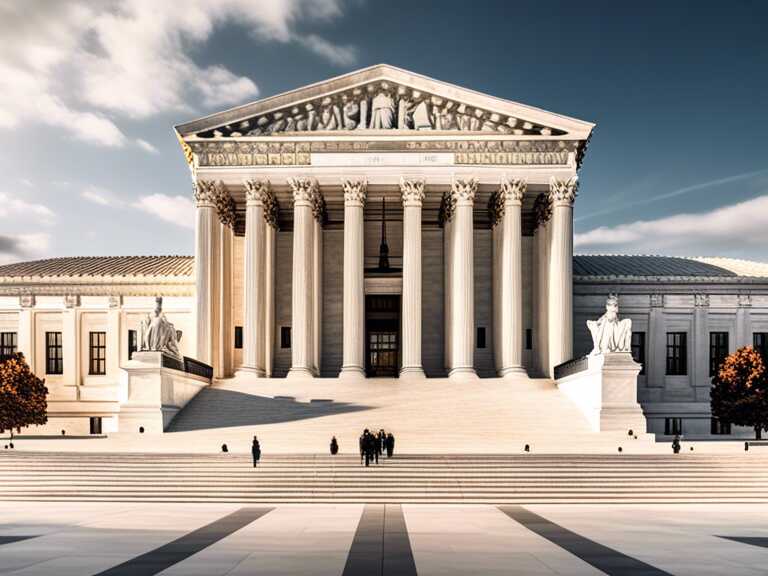
Supreme Court overturns Chevron ruling, a win for Trump's deregulatory agenda
Trump's appointees on the Supreme Court helped overturn a major ruling, fueling concerns about corporate interests prevailing over public welfare.

On June 29, the Supreme Court made a significant ruling that overturned the important 1984 decision known as Chevron v. Natural Resources Defense Council. This decision marks a victory for the deregulatory agenda and has significant implications for the balance of power between federal agencies and the judiciary. The ruling was supported by a 6-3 conservative majority, with all three of former President Donald Trump’s appointees to the high court joining in.
A Decade-Long Effort
According to Alex Aronson, the executive director of Court Accountability, a judicial oversight group, the ruling represents the culmination of a billionaire-funded campaign to harness the power of the Supreme Court for the benefit of corporate interests. The shift in the court's stance is seen as a move that favors corporate interests over the welfare of everyday Americans.
Impact of the Ruling
The decision to overturn Chevron is expected to level the playing field in court cases between small businesses and administrative agencies, according to the National Federation of Independent Business. This ruling is a significant development that aligns with the long-standing goal of conservative lawyers to reduce the influence of federal agencies in interpreting laws.
Chief Justice's Reversal
Chief Justice John Roberts, in the latest ruling, expressed that the approach outlined in the original Chevron decision was "fundamentally misguided." He emphasized that agencies do not possess special competence in resolving statutory ambiguities, and this responsibility lies with the courts. The decision reflects a shift from the previous stance that favored deferring to federal agencies in interpreting ambiguous laws.
Former White House Counsel Don McGahn highlighted the connection between the administration's judicial selections and the effort to roll back regulations. The appointment of judges who shared the administration's views on regulatory matters, such as Justice Neil Gorsuch, was seen as a critical aspect of advancing Trump's agenda.
Response and Future Implications
The Trump campaign and individuals associated with the administration did not provide immediate comments on the ruling. However, the decision has sparked reactions from various quarters, with concerns raised about the court's expanding power at the expense of federal agencies. There are fears that the ruling could restrict agencies from addressing major issues such as climate change due to increased judicial scrutiny.
Liberal Justice Elena Kagan criticized the ruling, expressing that it represents a shift from a rule of judicial humility to a rule of judicial hubris. Democratic members of Congress, including Sen. Richard Blumenthal, also voiced their concerns about prioritizing corporate interests over the well-being of the American people.
Varied Perspectives
While some experts believe that the ruling will not drastically alter the judicial approach to agency expertise, others view it as an important step in reining in the influence of agencies. Thomas Berry, a scholar at the libertarian Cato Institute, considered the ruling as a necessary correction to a doctrine that had previously granted excessive power to agencies in determining the scope of their authority.
Share news















